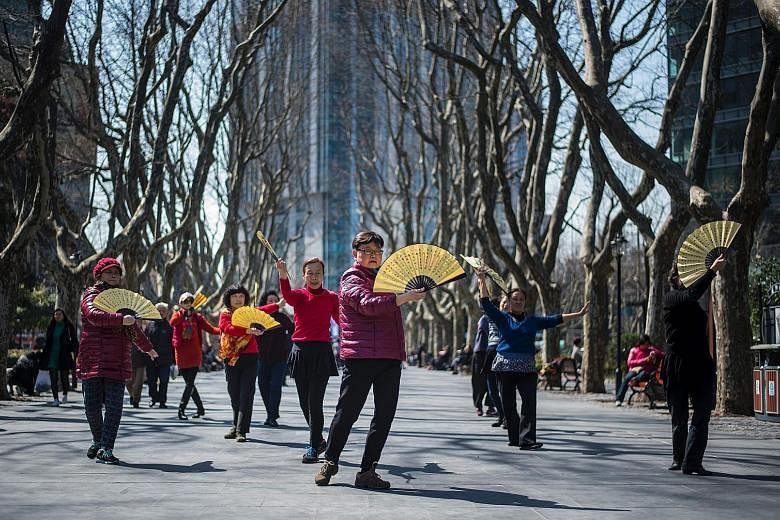BEIJING • China may be at risk of getting old before it gets rich, but investors can still get rich from China becoming old - and it is not just about buying healthcare stocks.
Cruise operators, convenience stores and cosmetic makers are emerging as sectors that stand to benefit from the demographic consequences of the communist leadership's now-abandoned one-child policy.
China's latest population plan estimates that about a quarter of the country's population will be 60 years old or older by 2030. This is a new phenomenon for the country, said Mr Tuan Huynh, Deutsche Bank Wealth Management's Asia-Pacific chief investment officer. "With this kind of increase in age and age groups, there will be a change in patterns of spending."
Aside from investing in healthcare, Deutsche is betting on cruise-operating companies to play the shift in spending and travel patterns it anticipates. Travelling on a cruise ship might be "more comfortable" than air travel for older people, said Mr Huynh.
Asian cruise passengers have tripled to 2.1 million in 2015 from 2012 with a majority coming from China, according to the Cruise Lines International Association, a trade group for the industry.
Another area that would enjoy growth in China is the convenience store sector.
In Japan and South Korea, which see a broad pattern of ageing, convenience stores are increasingly targeting the elderly, said Mr Arthur Kwong, head of Asia-Pacific equities at BNP Paribas Investment Partners. They are also very convenient for less mobile customers who prefer to travel shorter distances to get meals and daily necessities.
Listed companies in Japan and South Korea that derive at least 40 per cent of their revenue from convenience stores include Seven & I Holdings, FamilyMart UNY Holdings, Lawson and BGF Retail.
Cosmetic companies also benefit from a mix of ageing across Asia and growing affluence in China, patterns that have seen an increase in discretionary spending on lifestyle and "well-being" related goods and services, said Mr Christopher Wong, a fund manager at Aberdeen Asset Management Asia.
"All these cosmetic products are doing well in China and consumers are travelling outside of China to buy these products," he added.
BLOOMBERG

